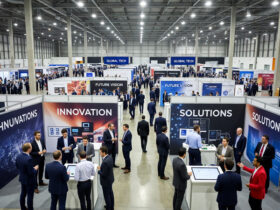No products in the cart.
Top Questions For Today’s Busy Managers

Those who manage the work activities of others have plenty of questions. Indeed, the practice of management is, by its nature, an organic creature. There are always new developments and advances, some of which work well and others that prove to be effective for many years. The current crop of questions managers are asking include those related to another COVID-like pandemic, smog check procedures for transport fleets, how to recruit excellent employees when to outsource various functions, and how to retain workers who show promise. Consider the following questions, along with possible answers.
Should Companies Prepare For Another Pandemic?
Questions about a possible second major pandemic are a common concern for ownership teams who barely survived the COVID situation. Organizations like the UN and FDA have given no specifics except to say that there are regional outbreaks of viruses in several parts of the globe. It could make sense for entrepreneurs to make plans for home-based operations in the event of another lockdown-style scenario soon.
How Can Government Fleets Minimize Smog Check Downtime?
Managing a commercial transportation fleet, particularly when it’s a government operation, is a multi-faceted chore. Fleets that do business in California must follow a long list of environmental and other regulations that are unique to the state. Smog check rules are a perfect example of a procedure that can take valuable time away from drivers and their employers.
Fortunately, compliance is much easier for transport firms that use telematics devices and software that minimize downtime that results from adhering to smog-related regulations. That means more uptime for all drivers and increased efficiency all around. The most effective way for owners to learn more is by reviewing an informative guide that explains all the pertinent details about how telematics solutions can save time and money for fleet supervisors and company owners.
What Prevents Workers From Job Hopping?
Those who need work tend to search for several things at once, but the list is short. Job seekers are most concerned with pay rates, benefits, long-term security, working conditions, and the chance for career advancement. Even if they don’t say so, the vast majority of candidates are interested in pursuing a career that increases joy while also maximizing the total value of all those features.
Interviewers are careful to make no commitments about anything except specific entry-level salaries and benefits. Working conditions don’t usually come into play until a person has been on the job for a while. Likewise, few realize what the career path and long-term employment security are like for at least a year after their hiring date.
Is Outsourcing Good Or Bad?
People who oversee startups, small enterprises, and medium-sized companies wrestle with the question of outsourcing. It’s common for decision-makers to make long lists of pros and cons to make up their minds about hiring a third party. In general, it makes good financial sense to outsource a task that you can’t handle in-house. For most startups in the financial services industry, that means hiring someone else to deal with IT security and legal issues. However, a manufacturing concern might do well to outsource accounting, plant maintenance, and other jobs.










Leave a Reply